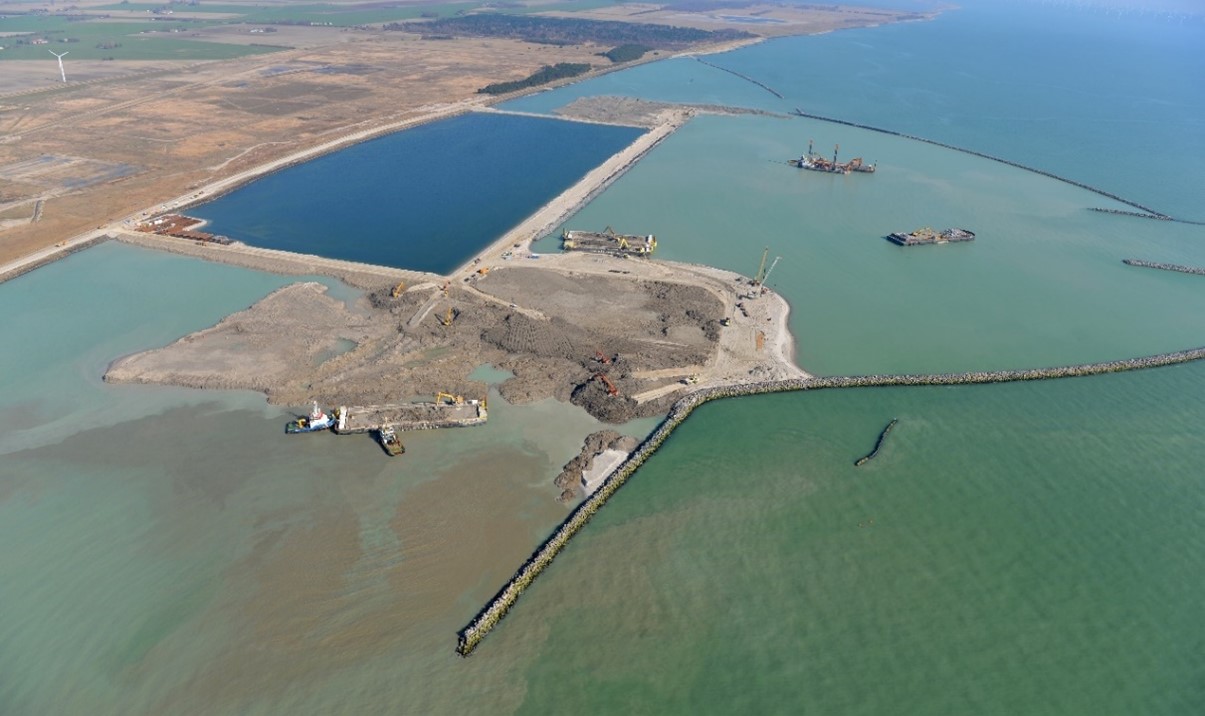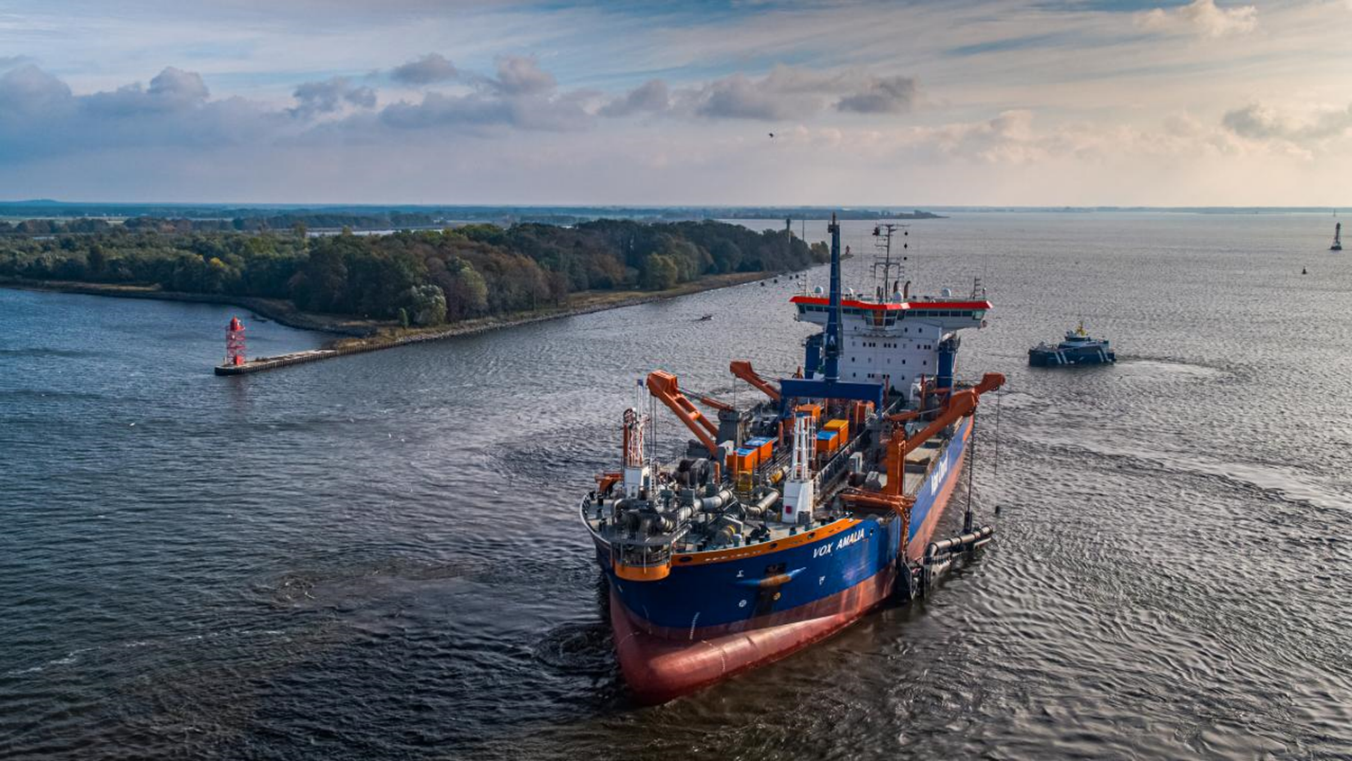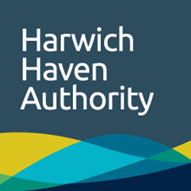Ports & Waterways Accessibility Lab (PWA Lab)
Securing the continuous accessibility of ports and waterways is key to maintaining a thriving maritime sector. The accumulation of sediment in navigation channels can significantly affect channel depth and hinder the safe passage of ships, making effective sediment management critical. At the core of our research in the Sediment Management and Port Accessibility Lab lies a deep understanding of the intricate interactions between the water transport system and the physical environment.
Our research team is dedicated to unraveling the complex dynamics of sediments, investigating sediment transport and deposition processes, and developing sophisticated models to predict and manage sediment accumulation. This multi-faceted approach allows us to accurately predict sediment-related challenges in ports and waterways and provide valuable insights to improve accessibility and safety.
An important stream of our research focuses on maintenance dredging, which plays a central role in maintaining navigable waterways. Dredging involves the removal and transport of sediment to ensure that navigation channels have sufficient depth and do not accumulate material that could obstruct vessel traffic. In our lab, we explore diverse maintenance dredging techniques, environmentally sustainable approaches, and innovative mechanisms for sediment control. Our goal is to provide practical, efficient, and environmentally conscious solutions that guarantee the continuous accessibility of ports and waterways.
The smooth movement of maritime traffic relies on clear and easily navigable waterways. Our laboratory is dedicated to advancing sediment management techniques and strategies that safeguard this essential aspect. We conduct in-depth research into sediment deposition and erosion patterns, and develop new dredging strategies and measures for effective sediment control. Through our ongoing efforts, we strive to ensure that ports and waterways remain open to vessels of all sizes so they can reach their destinations without impediments.
In the Sediment Management and Port Accessibility Lab, we are committed to preserving the lifeline of maritime trade by addressing the challenges of sediment accumulation and clearance. By combining our expertise in sediment dynamics, innovative dredging practices, and sustainable and circular solutions, we contribute to the continued success and accessibility of ports and waterways, supporting the global maritime industry.
Research programs
Research conducted within the Ports & Waterways’ labs is dedicated to advancing innovation, with a focus on economically viable, socially responsible, and environmentally sustainable maritime design and operations, including its logistic chains. Our research is often carried out in close collaboration with other faculties TU Delft and organizations such as Port of Rotterdam, Rijkswaterstaat, Deltares, consulting firms, and contractors.
The Ports & Waterways Accessibility Lab has been actively engaged in several research programs, contributing to the development and improvement of maritime operations:
• Port Research Centre Rotterdam – Delft (PRC)
• Rijkswaterstaat Inland Waterways
• Integral Planning of Delta (IPOD)
• Delft Infrastructures and Mobility Initiative (DIMI)
• SALTISolutions
• Mudnet
Port Research Centre Rotterdam (PRC) – Delft
PRC Delft University of Technology carries out research on topics that are relevant to the Port of Rotterdam (PoR). During the past years, this generated very innovative concepts, such as the foldable container and the Floating Container Crane, which are presently being developed. However, the program also gives opportunities for MSc studies to be carried out at PoR.
Rijkswaterstaat Inland Waterways
Presently, inland water transport has to face changes due to the increasing transport of cargo over water, a shift to more container transport, and changes in ship dimensions. Moreover, international developments offer challenges to connect European regions. Therefore, Rijkswaterstaat and TU Delft started to develop ideas on how to maintain the functions and structure of the inland navigation system. The intention of the discussions is to realize a long-term cooperation that benefits inland navigation.
Integral Planning of Delta (IPOD)
Deltas are the areas where urbanization and economic development take place rapidly and on a massive scale. However, these areas are often vulnerable to flooding and urbanization increases the pressure on the natural habitats in these areas. There is a worldwide demand for a planning method that can contribute to a balanced development between safety, ecological value, economic growth, and quality of the living environment. IPOD was a research about the planning and design methods in the southwestern Dutch delta.
Delft Infrastructures and Mobility Initiative (DIMI)
DIMI is a research involving different faculties of the Delft University of Technology. It focuses on the research areas of water and transport-related infrastructure and mobility. Ports & Waterways Labs do research under the branch of Sustainable Mainports and Hubs. The research is about the Port of the Future. In the long-term plan of the Port of Rotterdam, the port wants to be the most sustainable port in the world. How can this be achieved and what can be expected of future economic developments?
SALTISolutions
The availability of freshwater is under pressure in deltas throughout the world. Salty seawater is penetrating further up the rivers due to human intervention, such as the deepening of waterways, as well as climate change. Within SALTISolutions, the researchers, together with the partners involved such as Rijkswaterstaat, water boards, port authorities, and dredging companies, are producing a virtual model (digital twin) of the Rhine-Meuse Delta. This model will integrate knowledge about processes on various spatial and time scales: from turbulent flows at the smallest scale level to the consequences of climate change in the long-term. They will use this to predict how, where, when, and how long salt from seawater will penetrate, and how measures such as implementing nature-based solutions influence the freshwater supply.
Mudnet
MUDNET network centralizes the multidisciplinary knowledge around fine-grained sediments (mud). The goal of MUDNET is to bridge the academic and industrial worlds by initiating discussions, identifying knowledge gaps, and developing innovative applied knowledge that benefits academic and scientific progress, society, government, and the corporate world in the Netherlands and the EU. More information about MUDNET activities and projects can be found at https://www.tudelft.nl/mudnet
Furthermore, there are various Ph.D. studies ongoing at the lab:
- Implications of nature-based SALTIsolutions for port logistics
- Port Maintenance Strategies
- Understanding Sediment Dynamics for Equilibrium-Based Dredging Strategies in Ports
- Rheological Analysis of Mud: Towards an Implementation of the Nautical Bottom Concept in the Port of Hamburg (Completed: Link)
Every year, our research labs host several intriguing Master's projects. Here, you can see a few selected ones:
Key Publications
Key Publications | ||
|---|---|---|
Laboyrie, P., van Koningsveld, M., Aarninkhof, S.G.J., Van Parys, M., Lee, M., Jensen, A., Csiti, A. and Kolman, R., (2018). Dredging for Sustainable Infrastructure. CEDA / IADC, The Hague, The Netherlands. ISBN 978-90-9031318-4 | ||
Van Koningsveld, M., Verheij, H.J., Taneja, P. and De Vriend, H.J. (2021). Ports and Waterways - Navigating the changing world. Delft University of Technology, Hydraulic engineering, Ports and Waterways, Delft, The Netherlands. ISBN: 978-94-6366-444-8. | ||
Kirichek A., Cronin K., de Wit L. and van Kessel T. (2021). Advances in Maintenance of Ports and Waterways: Water Injection Dredging in Sediment Transport - Recent Advances, edited by A.J. Manning, ISBN 978-1-83881-119-8. | ||
Shakeel A., Chassagne C., Bornholdt J., Ohle N. and Kirichek A. (2022). From fundamentals to implementation of yield stress for nautical bottom: Case study of the PoH, Ocean Engineering, 266, 112772. | ||
Bakker, F.P. , van Koningsveld, M. (2022). Optimizing bed levels in ports based on port accessibility. Proceedings of the 37th International Conference on Coastal Engineering, Sydney, Australia. | ||
Shakeel, A., Kirichek, A., Talmon, A., and Chassagne, C. (2021). Rheological analysis and rheological modelling of mud sediments: What is the best protocol for maintenance of ports and waterways?. Estuarine, Coastal and Shelf Science, 257: 107407. | ||
Kirichek, A., Chassagne, C., Winterwerp, H., andVellinga, T. (2018). How navigable are fluid mud layers. Terra et Aqua, 151: 6-18. | ||











